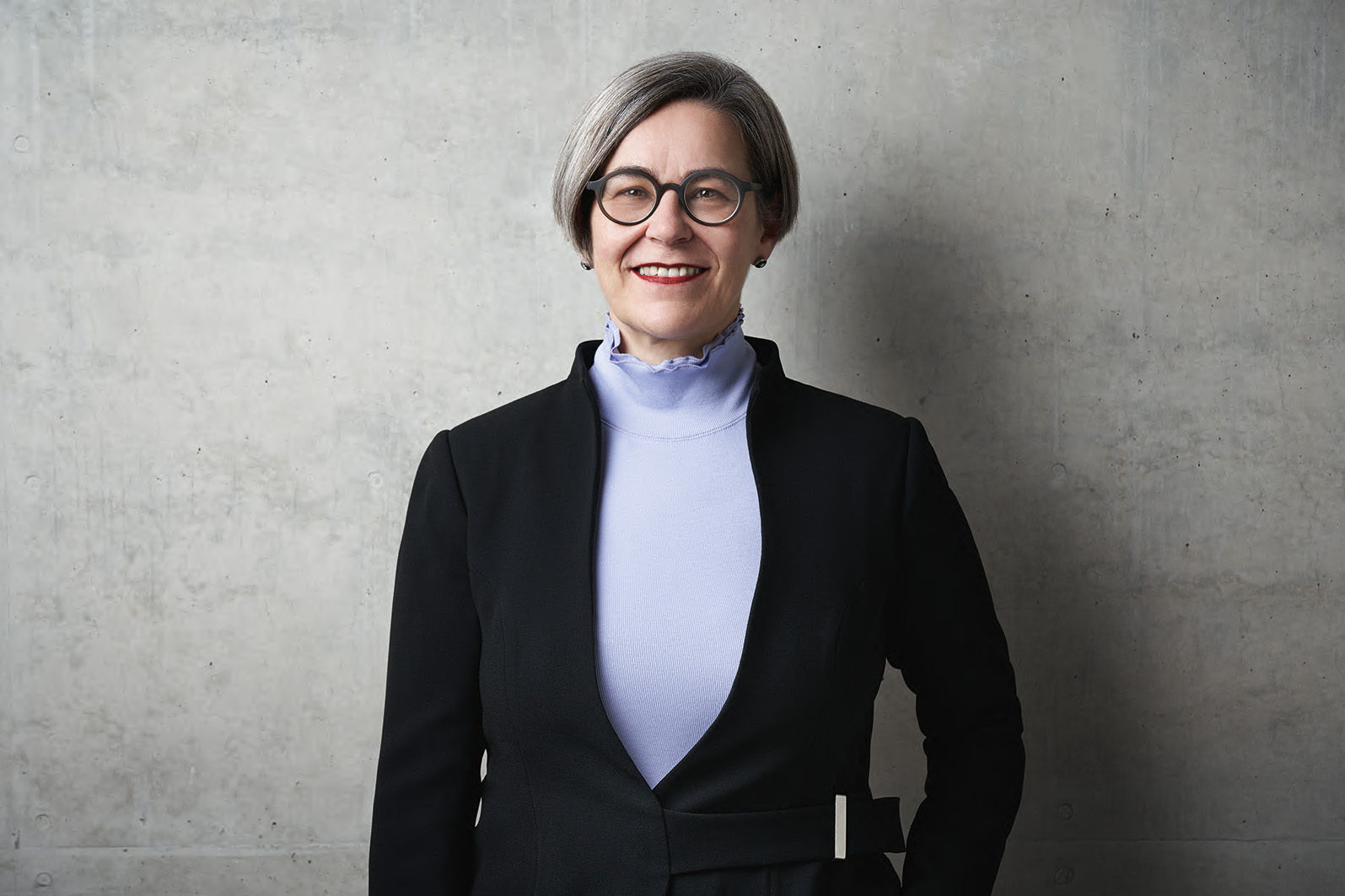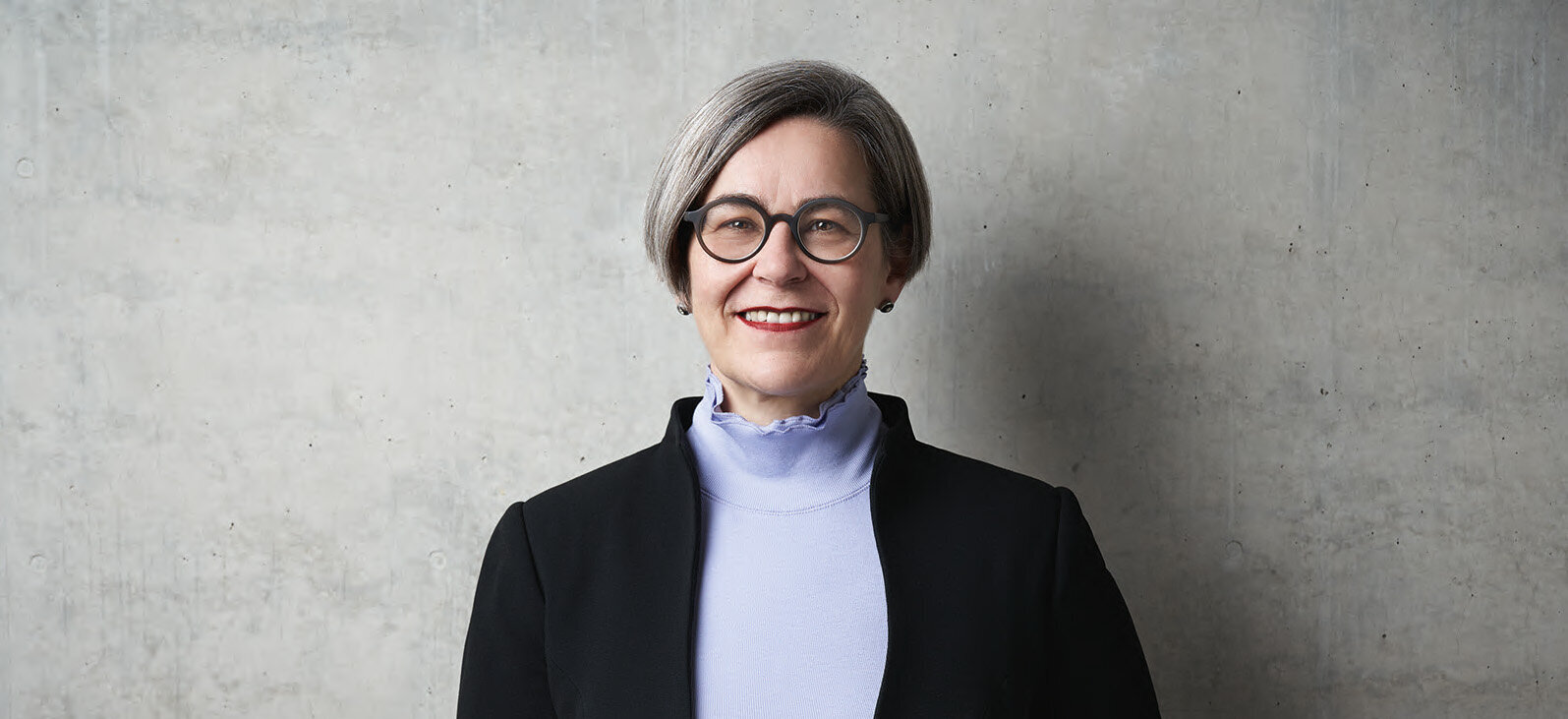March 1, 2024
Today, Friday, March 1, 2024, Prof. Dr. Rose Marie Beck took up her duties as the new President of Karlsruhe University of Applied Sciences (HKA). She was elected by an overwhelming majority in the first round of voting at the meetings of the University Council and Senate in October 2023 and succeeds Prof. Dr. Frank Artinger, who had continued to serve as President on an interim basis until yesterday.
"As President of HKA I am looking forward," says Dr. Beck, "to continuing to develop this ambitious and very well-positioned university in times of social transformation together with those responsible, employees and students. In the past, HKA has convincingly demonstrated that it is capable of being 'more than a university' with a high degree of agility, interdisciplinary collaboration and respectful cooperation. This is the only way to exploit the high innovation potential that characterizes this university."
Prof. Dr. Franz Quint, Vice-President for Research, Cooperations and Quality Management, and Norbert Reichert, Vice-President for Business Affairs, will support her as members of her Senior Management team. With Prof. Dr. Frank Artinger, Prof. Dr. Robert Pawlowski, Vice-President for Development, Construction and Infrastructure, is also leaving office and Prof. Dr. Angelika Altmann-Dieses, former Vice-President for Academic International Affairs, had already been elected as the new Rector of Mannheim University of Applied Sciences in June 2023. "In order to be able to master the future tasks and challenges in the national and international positioning of the University together and in the best possible way," says the new President, "we will complete the Senior Management team again as soon as possible."
Rose Marie Beck was born in 1964 in Lucerne, Switzerland, where she graduated from high school in 1985. She then attended the Ecole des Langues et Civilisations Françaises at the University of Geneva before going on to study African Studies, German Studies and Education at the University of Cologne, where she graduated with a Magister Artium in 1993. She also successfully defended her doctorate in African Studies there in 2000. This was followed in 2008 by her habilitation in African linguistics at the Goethe University in Frankfurt am Main.
She gained her first professional experience in academia in 1994 as a research assistant at the University of Cologne. This was followed by further positions at the Universities of Hamburg and Frankfurt until 2009. In 2006, she was appointed as a deputy professor at the Asia-Africa Institute at the University of Hamburg, followed by her appointment to a W3 professorship for African Studies at the Institute of African Studies at the University of Leipzig in 2010. In 2018, she was elected Dean of the Faculty of History, Art and Regional Studies, which comprises 48 professors, around 200 employees, 3,000 students, 44 degree programs, three museums and several collections and is responsible for third-party funding of 10 million euros per year. In 2019, she was elected spokesperson for the Deans of the 14 faculties at Leipzig University and, in this role, became a member of Leipzig University's crisis team during the pandemic in 2020. In 2020, she was unanimously confirmed in the office of Dean and in 2021 she was appointed Acting Director of Leipzig University's Museum of Musical Instruments in the Grassi museum complex.
Dr. Beck is involved in leading positions in numerous international research projects, currently, for example, in the "Global Hub" research building to prepare for excellence with the "New Global Dynamics" research focus at Leipzig University with a volume of 34 million euros, as well as in the "Recalibrating African Studies (RecAf)" project with three African partner universities in the Volkswagen Foundation's "World Knowledge" funding program. She also attaches great importance to promoting young researchers and has supervised numerous habilitation and doctoral projects as well as student theses.
She is enthusiastic about HKA's passion as a practice-oriented incubator for technological and social innovations. In this way, Karlsruhe University of Applied Sciences is also fulfilling its mission to expand applied research and teaching at the highest level and in regional, national and international networks. "I believe the university is well positioned," says the newly elected President, "to convince young people with modern study programs to train here to become urgently sought-after specialists. However, we, but not only we, will have to communicate even more strongly to this target group that the image of the engineering profession has already changed significantly and will continue to change. We will use cross-faculty and interdisciplinary study programmes to show how important and exciting technical professions are for decarbonization on the path to climate neutrality and in the context of increasing digitalization. In this way, we will try to gain the interest of young people and further strengthen the attractiveness of the HKA as a place to study, but also as an employer."
For Dr. Beck, the increasing importance of universities of applied sciences lies in the fact that they are committed to the development of the economy and society and align their research and teaching accordingly. This can be clearly seen at HKA in its research focus in the areas of resources, mobility, information and work and its eleven research institutes. HKA thus provides important impetus in the Karlsruhe science and technology region by developing innovative technologies and products in a targeted manner, testing them together with companies or with the city of Karlsruhe and implementing them quickly as technology transfer. In view of the importance of the universities of applied sciences and the profile that HKA has developed in recent years, it is therefore only logical that it now has the opportunity to independently supervise doctoral students via the Baden-Württemberg PhD Association of universities of applied sciences. "I'm looking forward to this task," emphasizes Dr. Beck. "I also see this as an opportunity to further develop the content of applied research in the close link between research and teaching that is typical of HKA and the universities of applied sciences in Germany. This is also in line with the local tradition of promoting student projects, often in close cooperation with companies, and prepares young scientists at an early stage for the translation of current challenges and concrete problems into scientific questions and the subsequent systematic development of solutions."

